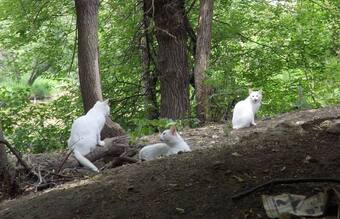
Since CSC took over management of the colony, many important things have happened. First and foremost, volunteer community trappers have committed to feeding the cats every day, regardless of weather, hardship, or confrontation. Bitter cold, torrential downpour, blazing heat, driving snow, icy trail, slippery mud, illness, injury, threats from irate people -- none of these obstacles have stopped these heroes from making sure the cats are fed.
These same community trappers have given up a considerable chunk of their personal time to trap the cats, bring them in for surgery and vaccinations, and then return the cats to the river bank. In total, 63 cats and kittens have been pulled from the colony. 32 adult cats spayed or neutered, and vaccinated; 31 kittens placed in our adoption program.
So far this year, only 2 kittens have been sighted. With any luck, they will be trapped and placed for adoption soon, and their mother spayed, vaccinated and returned to the colony.
Let's stop and think about that for a moment.
If CSC had not stepped in to manage this colony, those 32 adult cats and 31 kittens would have continued to reproduce. Statistically, only 8 of the kittens would have survived long enough to mate, but that would make a total of 40 breeding adults, producing at least 2 litters of kittens this year. If half of the cats were female, that would be at least 200 kittens born to the colony this year. 150 of them would have died before 3 months of age. 50 breeding adults might have been added to the colony. Next year, over 400 kittens would have been born to the colony, with 100 of them joining the breeding population. With no vaccinations, all of the cats would have been subject to viral infections like distemper and rabies. The numbers would have continued to climb, until the natural food supply was exhausted. Then starvation would have set in. The cats, being territorial, would have remained at the colony site, and continued to breed. It would not have been pretty.
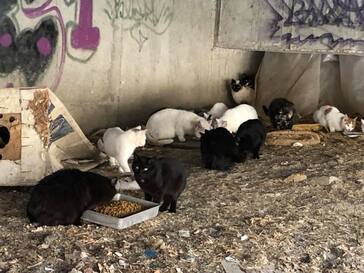
Because CSC took on management of the colony, the number of cats at the site is dropping. Feeders report seeing between 5 and 20 cats each day -- down from last year, when 40 or more cats were often seen during feeding times. All of the adult cats are healthy. Even one brought in for veterinary care, because of an upper respiratory condition, is of good weight, and in excellent condition, overall. This is directly because the cats have been altered and vaccinated.
More precisely, it is because the colony is being managed in the proper way:
- regular feeding schedule established prior to trapping
- mass trapping of as many adult cats as possible, for TNR, within the first year of management
- removal of all kittens for adoption
- ongoing trapping of unaltered adults for TNR, to ensure population reduction
- ongoing feeding and observation
All that notwithstanding, management of the riverbank colony is a resounding success. This project is, in fact, a textbook example of how to do it right. We are justifiably proud of it.

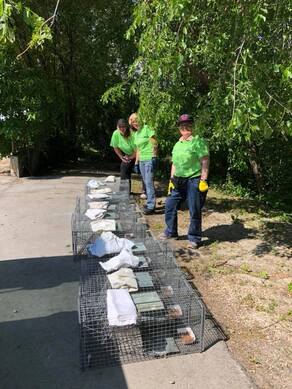
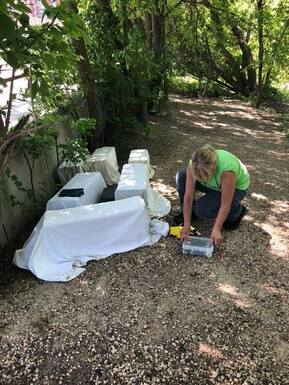
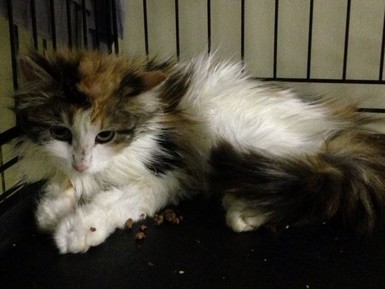
 RSS Feed
RSS Feed